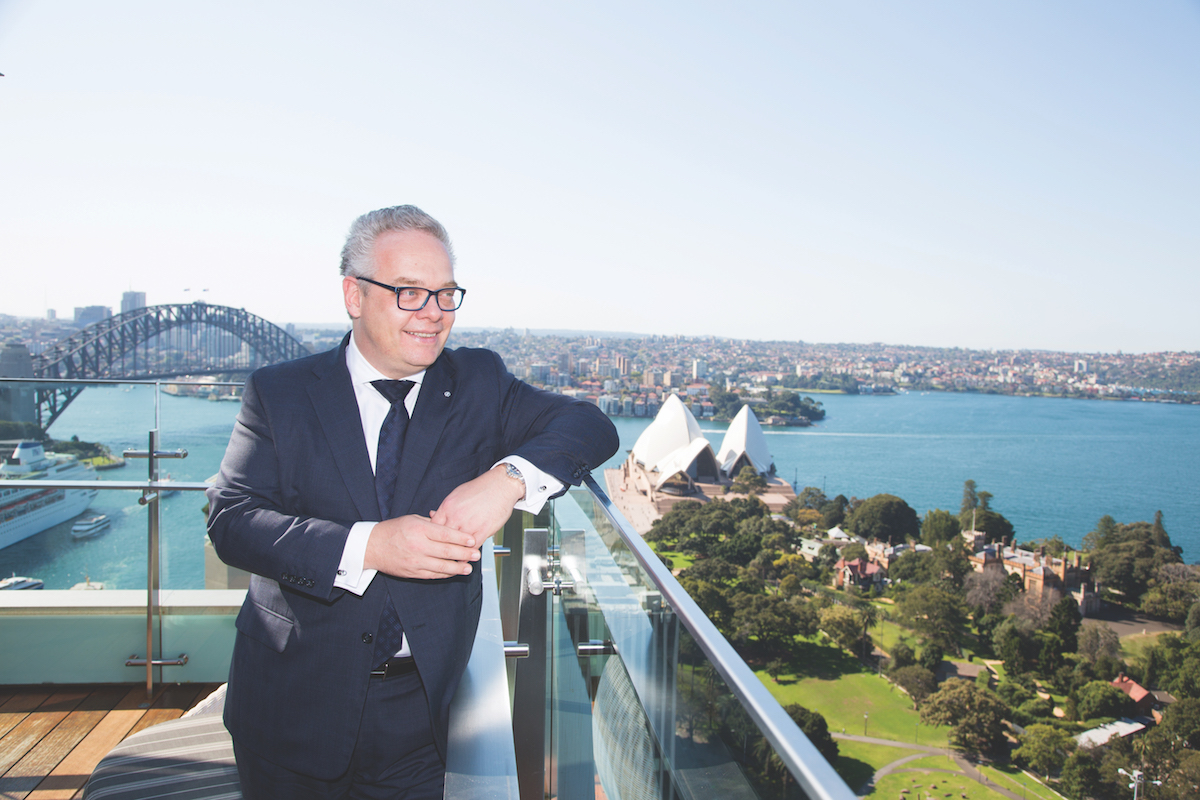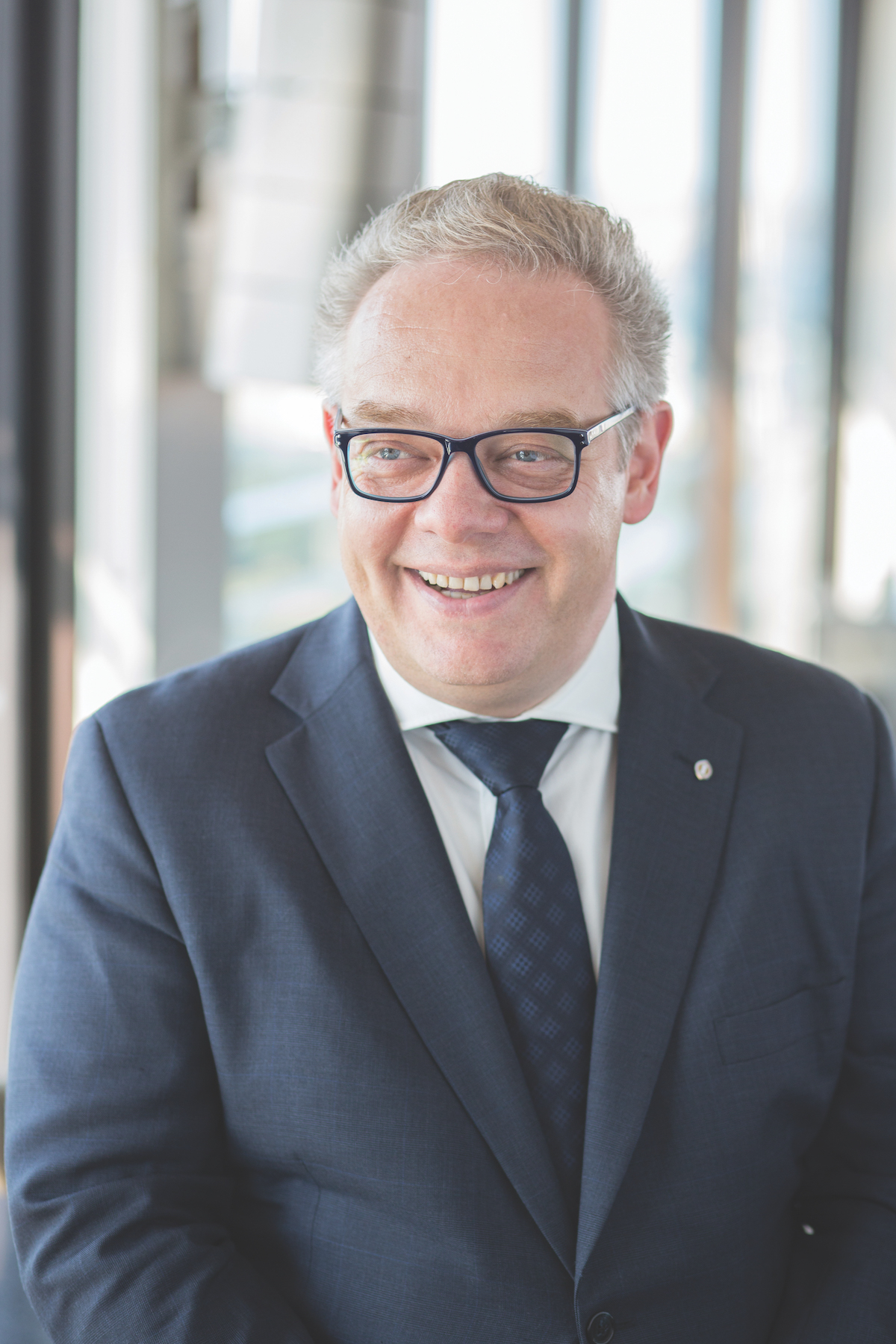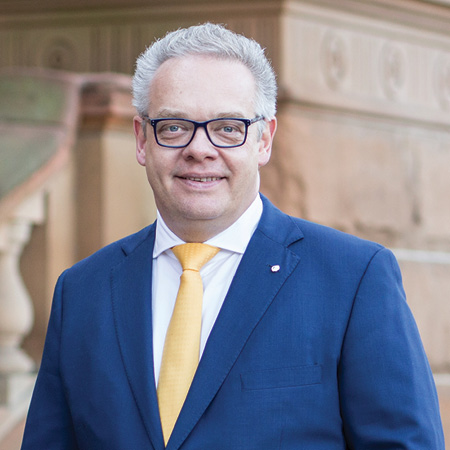A man whose love for the hospitality industry has taken him across Germany, Austria, the UK, Africa and Australia — Jörg T Böckeler has always said his great curiosity for new experiences and markets is what has driven him to eventually become Area General Manager of InterContinental Sydney. Working in the sector across Michelin-star restaurants and luxury hotels for more than twenty-seven years, Jörg says that hospitality is still the most challenging and rewarding career he can imagine.
In search of new experiences
“Early on I became very passionate about my personal vision for hospitality. To this day, I have remained curious about the industry, its trends and the pace at which the economy influences our business,” Jörg says. “Much of my passion has also stemmed from correcting the recurring perception that careers in hospitality are not a serious option. For a while, many countries have held this idea, thinking of the sector as more of an interim career space until the real thing came along.”
Jörg, however, always knew he was in it for the long term, starting out in the industry with a role in a three-star Michelin restaurant back in Germany. “This was my first taste of the perfectionism and excitement that comes with the business,” he says. “Here I became passionate about good food and its place within the hospitality industry.” From there Jörg moved quickly through to front-line and management roles, from Germany to England, where he worked for The Savoy Hotel and Cliveden House Hotel in Taplow. While in the UK, Jörg undertook his business studies at Oxford Brookes University as well as going onto IMADEC University for an executive MBA.

Building a wealth of experience working around the world
Jörg has now been with the InterContinental Hotels Group (IHG) for more than fifteen years, first joining the group in 2001 as Hotel Manager for InterContinental Vienna. From there he continued to serve in head management roles for IHG hotels in Frankfurt, Dusseldorf, the Bavarian Alps, Melbourne and Cape Town. “I am not sure if I had this foresight at the time, but it has served me very well to build up that wealth of experience across the globe in front-line and leadership roles. And growing to these from an entry level gives you a true sense of the hospitality craft and instils a focused service attitude,” he says. “I’ve been fortunate to work with some phenomenal visionaries and talented hoteliers across the globe who have worked their way into amazing roles, starting from the very foundations of hotel training.”
“I’ve been fortunate to work with some phenomenal visionaries and talented hoteliers across the globe who have worked their way into amazing roles, starting from the very foundations of hotel training.”
– Jörg T Böckeler
He moved to Australia with his family in 2011 and worked with InterContinental Melbourne, The Rialto, until 2013 when he accepted his current position with the Sydney counterpart. “I am currently also the Area General Manager for Mulpha Hotels Australia, which encompasses InterContinental Sydney, InterContinental Sanctuary Cove Resort, Holiday Inn Old Sydney and Holiday Inn Sydney Airport,” he says. The hotel industry’s current direct impact on Australia’s economy will continue to heighten Jörg’s curiosity and passion, as tourism continues to be one of Australia’s biggest sources of revenue.
The tourism industry continues to grow
“Only last year, visitor spending on accommodation, flights, tours and alike accounted for 2.5% of gross domestic product. To put that in perspective, Australia’s largest export, iron ore, accounted for 2.7% at the same time last year, making tourism the second-largest sector,” says Jörg. “These numbers are not insignificant, and they shine a much-needed spotlight on the potential for successful career paths in the hospitality profession, and its overall relevance to the regional and global economies. The steady growth of the industry has started to shift the perception of hospitality careers as valued and academic prospects.”
The InterContinetal Hotel Group has helped to address the skills shortage by investing heavily in dedicated talent development initiatives, such as the IHG Future Leaders program, as a means to attract and retain talent. “Skipping steps or missing that skills education can have catastrophic consequences in this industry. We train our talent by developing them through various departments with real accountability and high pressure training to gain full experience and skills,” says Jörg. “After all, this wonderful industry can only deliver outstanding service and ongoing innovation with highly engaged and well-trained professionals who passionately see a long-term career.”
Seeking out movers and shakers for leadership positions
Jörg also feels that recruitment and training are the responsibility of company leaders, as opposed to leaving it to the HR department — a philosophy that he tries to instill throughout the entire leadership team so that there are always more eyes looking both internally and externally for committed and ambitious workers. “We always have to be looking out for who is making noise in the industry; who is challenging the status quo, who is going above and beyond, and who is willing to work for it,” he says.

Retention will also remain a challenge however, which Jörg thinks can be addressed in the industry through continued transparency and one-on-one time with his colleagues to ensure an ongoing investment in the business and connection to its values and goals. “At InterContinental Sydney we host monthly all-colleague ‘In The Know’ afternoon teas to recognise colleagues and business priorities. I also recently hosted a series of intimate teas with small groups of colleagues to spend more one-on-one time and address particular challenges. I found the more one-on-one time I spent with colleagues, the more invested and personally accountable they became for our business and its success,” he says.
Not all conversations around the war on talent should remain internal though. As Jörg says, the whole hospitality industry needs to tackle the skills shortage with wider discussions around the minimum wage as it’s applied through the sector, and its impacts on perceptions and the desirability of a hospitality career. Visa restrictions, too, will be having an impact, particularly following Brexit when many Europeans will potentially be looking for different opportunities to relocate for work, and an ultimate change in cross-country commerce.
“With the spotlight on bilateral trade and visa agreements following the recent change in Europe, I think we need to start bringing it home and asking how these decisions impact all areas of our commerce; how these decisions are being felt on local levels,” he says. “These are the areas that are going to shift the hospitality economy for the better.” Looking ahead, inbound tourism from China is also having a profound affect on hotels, as Australia is currently welcoming around 1.2 million Chinese tourists annually, and the figure is rising. In April 2015, IHG introduced its global ‘China Ready’ program — also called Zhou Dao, a combination of IHG’s Chinese name ‘Zhou’ with the Chinese philosophical concept of ‘Dao’, which means ‘the way’.
Understanding the Chinese traveller
“This program has been an incredible success in understanding and accommodating the Chinese market. IHG now has a wealth of data and insights into the market, the Chinese traveller and Chinese etiquette. We need to utilise this information to ensure we are creating a welcoming environment while still immersing travellers with unique local cultural experiences,” says Jörg. This new suite of Chinese-led service initiatives will be rolled out at the end of the year, and includes an increase in Mandarin-speaking employees, Chinese translated welcome packs, Chinese tea and slippers in the rooms and trained chefs to prepare Chinese-preferred food and beverage offerings.
“It is not enough to sprinkle a few touch points across the hotel, we needed to look at our vertical structure and take a broad approach to embedding the program throughout all departments,” says Jörg. “Overall spend from Chinese visitors is forecast to be worth up to $13 billion by 2020 — these are numbers we cannot sit back and wait to capitalise on.”

